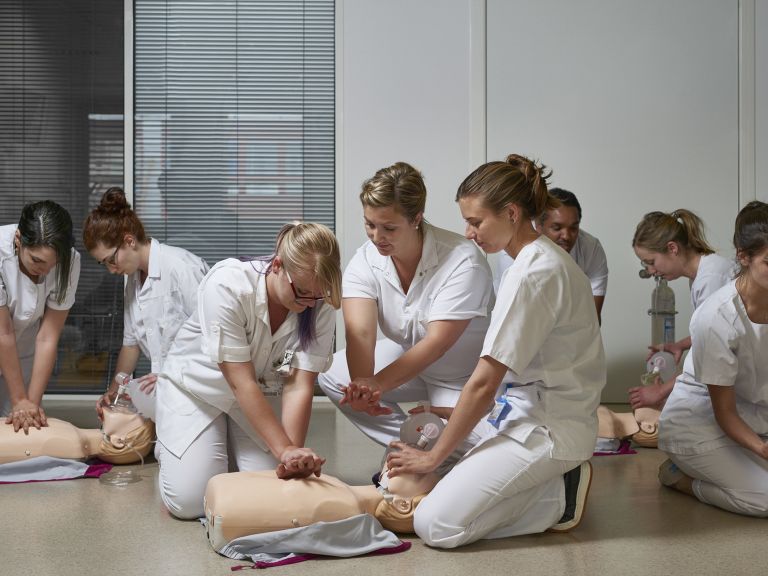Everything You Didn’t Know You Needed for Nursing Studies
The nursing program is an exciting yet demanding journey that readies you for a meaningful career in healthcare. As you embark on this path, you might find yourself flooded by the volume of information you need to learn and the skills you must acquire. While you may already know the fundamentals of what to look forward to, there are numerous tips and resources that can help ease your experience more seamless and more enjoyable.
From essential study tools to strategies for dealing with stress, there is so much that you may not realize you need to excel in nursing school. In this article, we will discuss everything from the top organizational tools to practical advice on clinical rotations, making sure you are fully equipped for the challenges you will face. Get ready to discover the hidden gems that can transform your nursing school experience and put you on the path to becoming a confident and compassionate nurse.
Essential Supplies for Medical Students
One of the most supplies for nursing students is a quality stethoscope. This vital tool is used regularly for assessing patients' heartbeats and lung sounds. A good stethoscope can make a big difference in a student's learning experience, allowing them to improve their clinical skills well. When selecting a stethoscope, consider factors like acoustic quality, durability, and comfort, as you will be using it frequently during your training.
Another important supply is a reliable nursing backpack. Your backpack should be ample enough to carry textbooks, a laptop, clinical supplies, and personal items. Look for one with several compartments to keep everything organized. Comfort is also essential; a good backpack should have padded straps and a back panel to support long hours of wear. The ideal backpack can help you handle your significant workload and stay organized throughout your nursing school experience.
Additionally, a collection of nursing scrubs is necessary. Budget-friendly and well-fitting scrubs are a must-have, as you will wear them during hands-on rotations and skills labs. When buying scrubs, consider the fabric, fit, and ease of movement, as these factors can greatly impact your ease while performing hands-on tasks. Select scrubs in hues or patterns that show your personality, making your time in nursing school not only effective but also enjoyable.
Tech Tools to Improve Learning
In today's digital age, nursing students have access to a wide array of digital resources that can greatly boost their educational journey. Mobile apps tailored for nursing education provide important resources such as medication guides, medical calculators, and anatomical illustrations. These tools can help students quickly find vital information, which is key during clinical rotations and exams. Using lecolliget.com allows for productive study methods and reinforces the material learned in class.
Another valuable resource is e-learning platforms that offer interactive simulations and virtual patient scenarios. These platforms enable students to develop clinical skills in a secure environment. By engaging with these simulations, nursing students can implement theoretical knowledge to real-world contexts, which helps to build confidence and competence before working with actual patients. Additionally, many of these platforms provide prompt feedback, promoting a deeper comprehension of nursing concepts.
Teamwork tools, such as cloud-based document sharing and communication applications, are also essential for nursing students. These tools allow for seamless collaboration among peers, allowing study groups to share notes, go over difficult concepts, and prepare for exams jointly, regardless of their physical locations. The ability to connect and communicate digitally creates a nurturing learning community that can be extremely beneficial throughout nursing school.
Learning Strategies for Success
Proven learning strategies are crucial for succeeding in nursing school. One strategy is to establish a organized learning plan that balances academic work, practical experience, and personal time. Break down your syllabus into small sections and set aside dedicated periods each week for studying each subject. Utilizing resources like planners or online calendars helps keep you organized, guaranteeing that you set aside time to go over class notes, readings, and develop clinical skills. Consistency in your learning routine reinforces comprehension and enhances memory of difficult material.
Engaging study methods can significantly boost your grasp and recall of healthcare concepts. Instead of passively studying books, engage with the content through strategies such as summarizing information in your own language, explaining concepts to peers, or creating visual aids like mind maps or flashcards. Practice questions and exercises are also invaluable for applying knowledge in real-world scenarios. This experiential method not only prepares you for tests but also boosts your self-assurance in clinical settings, where critical thinking is essential.
Working together with fellow classmates can improve your learning experience in nursing school. Form study groups to go over difficult content, exchange resources, and practice skills together. This peer interaction fosters a helpful environment, allowing you to gain different viewpoints and broaden your knowledge of various subjects. In addition, reaching out to faculty for assistance on difficult concepts or seeking mentorship can offer further support and promote a successful educational journey.
